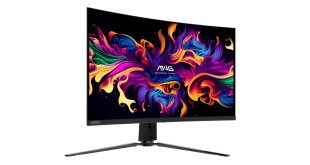IBM has reportedly started to search for a buyer for its semiconductor manufacturing business. While the move itself seems like a milestone for the whole industry, the potential transaction will not have a huge impact on the market since IBM is not a leading maker of chips. Moreover, chips today are by far not the most important part of complex solutions that IBM develops.
IBM has appointed Goldman Sachs to search for possible buyers for its semiconductor manufacturing business, which consists of a rather old 200mm fab in Burlington, Vermont, and an advanced 300mm facility in East Fishkill, New York, reports the Financial Times. While IBM will more than likely sell its proprietary process technologies and other intellectual property needed to manufacture chips, it is unclear whether the company will sell all of its semiconductor-related IP and know-hows.
IBM’s mission critical and business critical machines are based on Power processors manufactured at IBM’s fabs. The company’s Watson supercomputer also relies on Power chips made by the company. In case IBM sells its fabs off, it will have to outsource chip production to third parties and will not be able to tailor process technologies to its chips.
“It is a step away from their heritage,” said Patrick Moorhead, an analyst at Moor Insights and Strategy. “This is probably their biggest strategic realignment for 20 years.”
It is reported that the Big Blue is not “wedded to the idea of selling” its semiconductor business, but may create a joint-venture for its chip manufacturing with a partner. The latter could be a little more comfortable for IBM since it could continue developing proprietary things for its core businesses and keep that IP relatively “in house”. Moreover, even in case it sells its fabs, IBM could keep its semiconductor-related R&D division that would continue advanced research, whereas a new foundry company would do commodity manufacturing with minimal profit.
“IBM will continue to do research – research and engineering services are IBM's strengths – not low cost manufacturing,” said Boris Petrov, principal of the Petrov Group, in an interview with X-bit labs several years ago. [IBM has invested a lot in] SOI, eDRAM, TSV, 3D silicon and all the expensive material science directions that IBM developed for its internal needs. In my scenario, IBM will provide process and materials research [and the potential buyer for the fab] will provide common platform wafer foundry services.”
According to IC Insights, a semiconductor market tracking firm, IBM is the 11th largest contract maker of chips. Last year it earned $485 million from operations, a 12 per cent higher than in the prior year. The world’s largest contract maker of semiconductors – Taiwan Semiconductor Manufacturing Co. – earned $19.85 billion last year, whereas its closest competitors received around $4 billion in revenue in 2013. Market analysts have long said that IBM’s semiconductor operations are not profitable for the Big Blue.
While IBM’s fabs are hardly state-of-the-art by today’s standards, a potential buyer will not only get the buildings, equipment and certain IP, but also customers, including those who need high-end microprocessors and eager to pay for them.
IBM did not comment on the news-story.
KitGuru Says: The world is changing. Things that used to bring hefty profits in the past can barely bring any profit today. Which is why IBM is getting rid of commoditized businesses. First it sold the PC unit to Lenovo Group, then it sold x86 server unit to the same company and it looks like the time has come to consider strategic options for the semiconductor manufacturing operations.
 KitGuru KitGuru.net – Tech News | Hardware News | Hardware Reviews | IOS | Mobile | Gaming | Graphics Cards
KitGuru KitGuru.net – Tech News | Hardware News | Hardware Reviews | IOS | Mobile | Gaming | Graphics Cards


